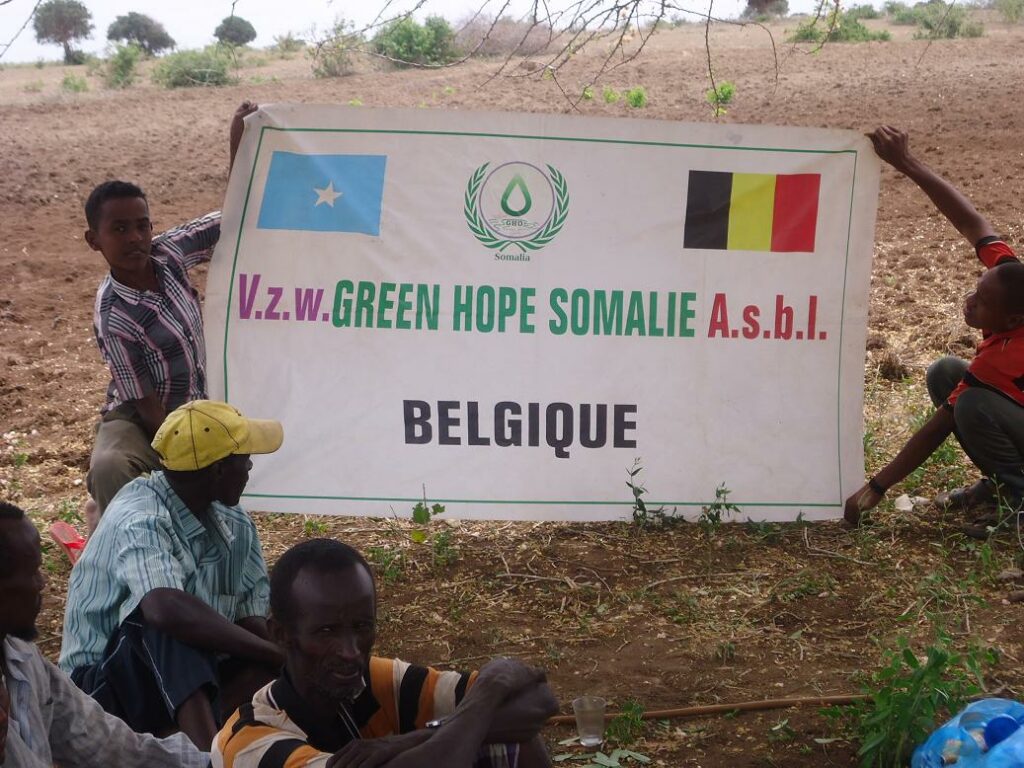Our Work
Education
Almost half of the Somali population cannot read or write, which makes Somalia one of the least literate countries in the world. A literate citizenry is essential for social, economic and human capital development. Empowering individuals to improve their reading, writing and basic numeracy enables them to become self-sufficient and productive citizens
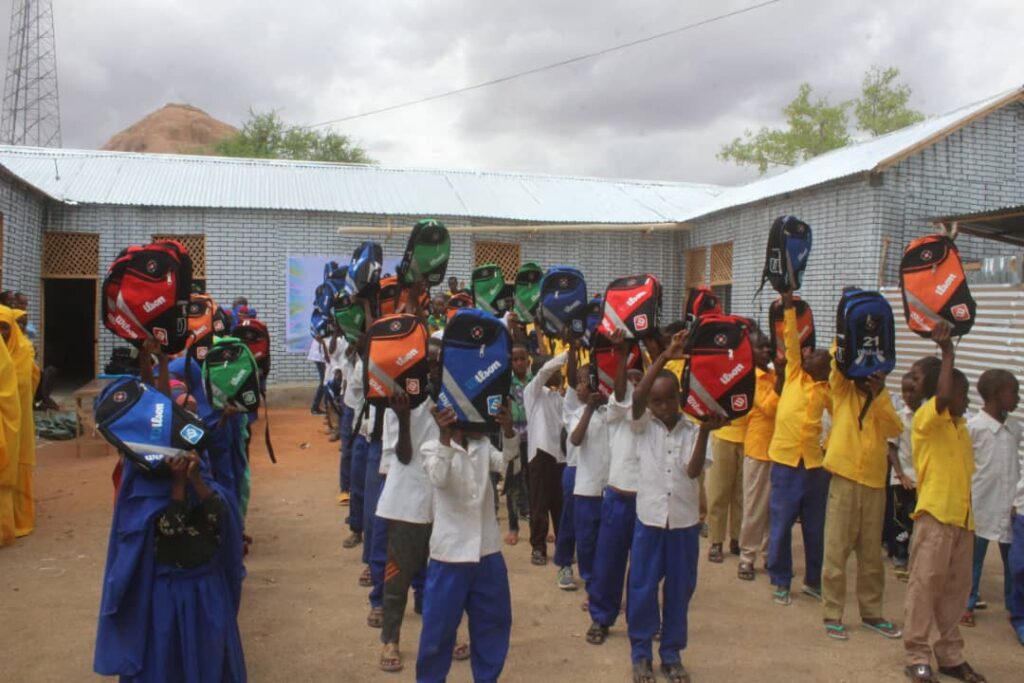
The baseline study indicates that three million Somali children, or about 70% of all school-aged children, are not in school. This has left them disengaged and susceptible to the influence of extremist elements. Over 12,000 new schools are needed across the country to accommodate out-of-school children.
Vocational Training
Training and skills development programs are key factors to improving rural productivity, reducing poverty, creating income-earning opportunities, enhancing food security and promoting sustainable rural development and livelihoods. In developing countries rural women play major role in agriculture and other rural activities. However, due to lack of adequate skills and proper training their participation in productive and remunerative work is very limited. Vocational training focused on women skill development and empowering them through micro-financing schemes will create alternative income and hence better life to women and rural farming community.
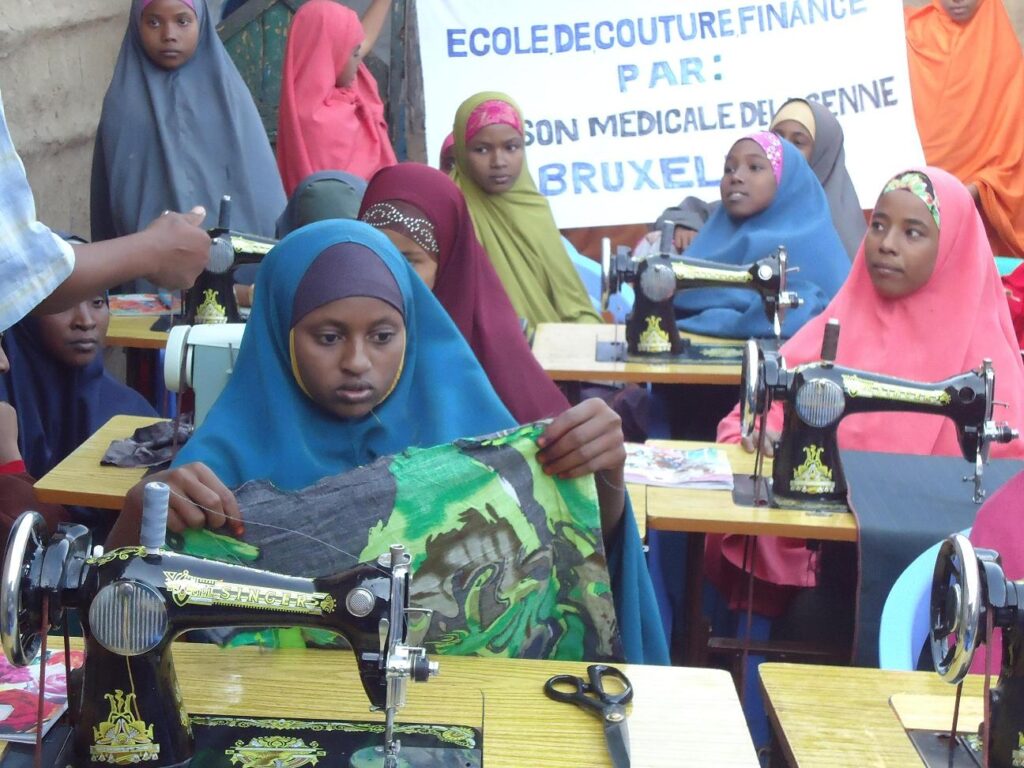
Green Hope, together with its partners and other charity organisations is tries to address some of these issues by collecting and distributing educational materials and school meals.
Children
Several researches revealed that children in rural communities remain out of school at an alarming level in developing countries. And the situation in Somalia is not different. The studies further indicated among others issues poverty , child labor, gender, child marriage, disabilities, hunger, refugee crises, etc… as primary factors for communities not to send their children to school. In Somalia the rural community is too poor and cannot afford to feed their children let alone buying educational materials and proper clothing to their children.
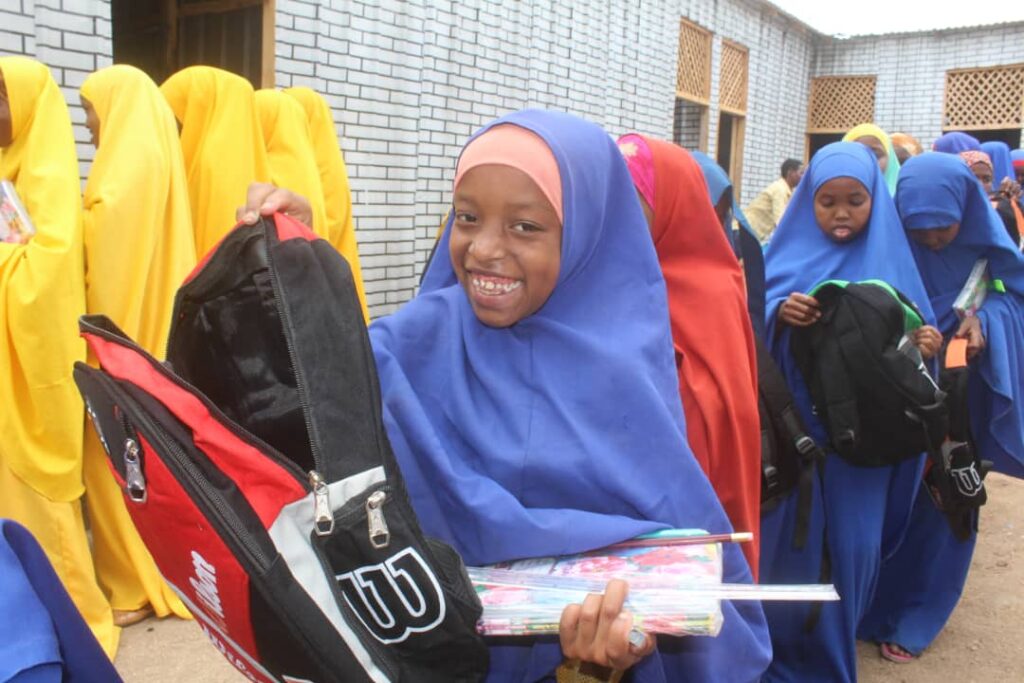
Green Hope also assists the families of disabled families and encouraging them to send their children to school.
Girls
In Somalia, as in other developing nations, large numbers of girls often drop out of schools as a result of discriminatory gender norms such as early pregnancy, early marriage and the demand for girls’ involvement in household work. Central Somalia in particular is one of the difficult places for children in general and girls in particular. Conflict, drought and poverty has had a profound impact on the regions young. Many rural families depend on girls to supplement low incomes.

Green Hope is working with other charity organizations to provide additional support to poor families to send their girls to school with the motto equal educational rights to all.
Disability
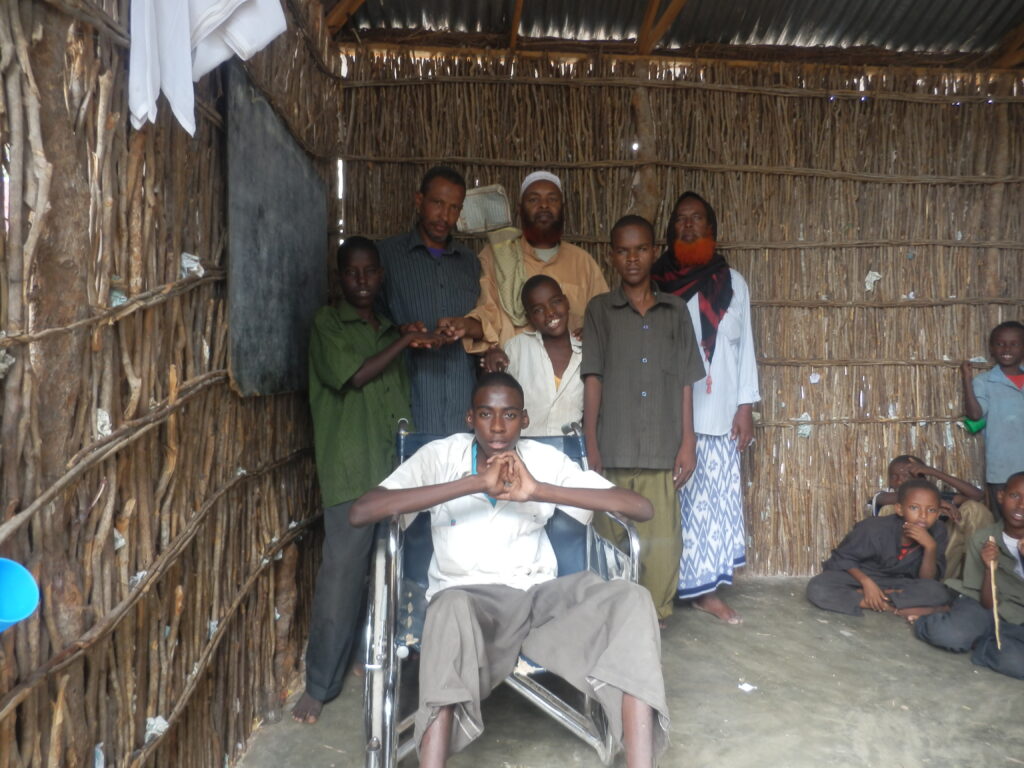
According to the World Health Organization (WHO) on May 2011: people with disabilities make up at least 10% of the population.
There is no or little data on persons with disabilities in Somalia, but we see every day different categories of disabilities, Women with disabilities, children with disabilities, and elderly people with disabilities.
Green Hope and many other organizations do not have data or information available on persons with disabilities in Somalia.
Focuses on addressing the needs of persons with disabilities by providing access to quality rehabilitation services, training sessions and lobbying for disability mainstreaming, and improving the capacity of staff supporting persons with disabilities
Women with disabilities: to protect against all forms of abuse, discrimination and violence. To focus their needs and raising awareness and organize activities programmes on women.
Children with disabilities: right to have care protection and security. To ensure access to education, health and vocational training.
Elderly people with disabilities: to ensure the protection and safety of persons with disabilities in all situations especially in situations of risk and humanitarian emergencies.
Health
The riverain farmer community suffer a lot of diseases specially: Malaria, Glaucoma and other diseases, some of these diseases easily curable.
Assess the importance of environmental goods and services to human health and well-being through clean water from well maintained, catchments.
Develop capacity at all levels so that the heath sector acknowledges, understands and uses the importance of the environmental goods and services as key asset in health service delivery.
Please help to reduce child mortality through improved health care.
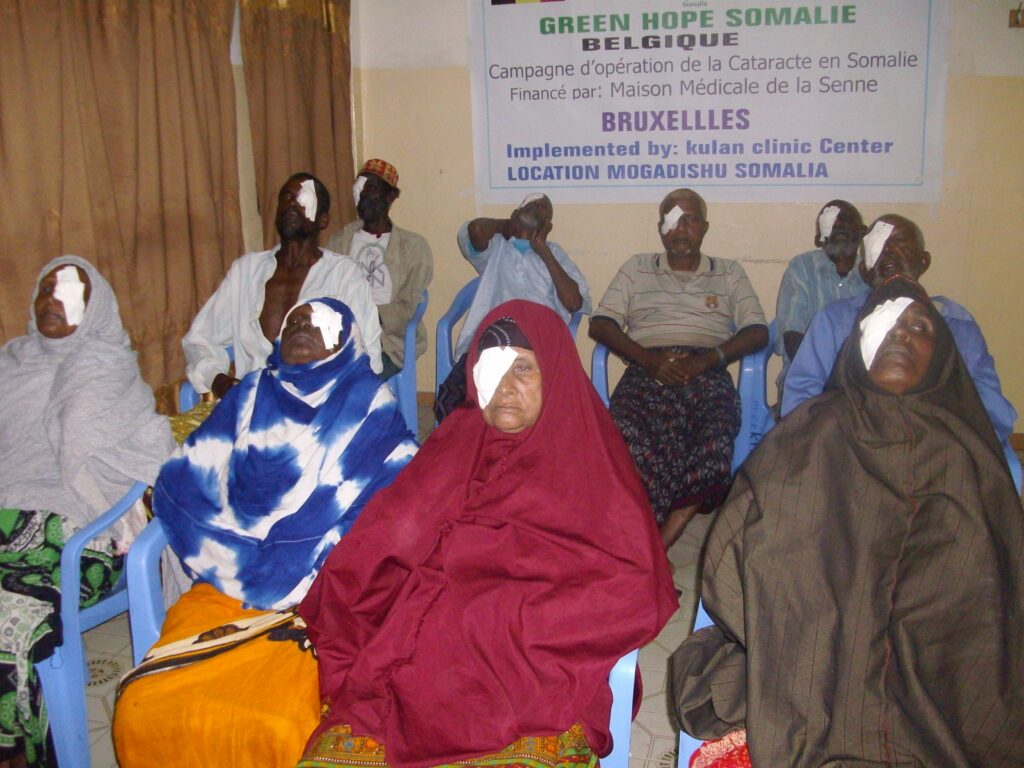
Microfinance
Our survey clearly shows that financial institutions do not reach out into rural areas as the usage of financial services in general low. The farmers communities is thus financial excluded and has limited experience in dealing with financial institutions and services.
The following training’s were conducted and planned by Green Hope:
- Business and financial record handling,
- Poverty alleviation through microfinance,
- Microfinance: concept, and operational practices.
- Formulating a business plan and experience sharing.
- Enterprise loans for rural youth in Somalia.
- Access to finance for farmers communities.

The microfinance training and support targets women
Seventy percent of the world poor are women. Yet traditionally women have been disadvantage in access to credit and to other financial services. Financial institutions often focus on men and formal businesses neglecting the women whom make up a large and growing segment of the informal economy.
Water
Water touches every aspect of life, and in Somalia uncertainty over access to and the availability of this basic resource may be reaching crisis levels. The World Health Organization estimates that millions of Somalis are lack access to safe water today.
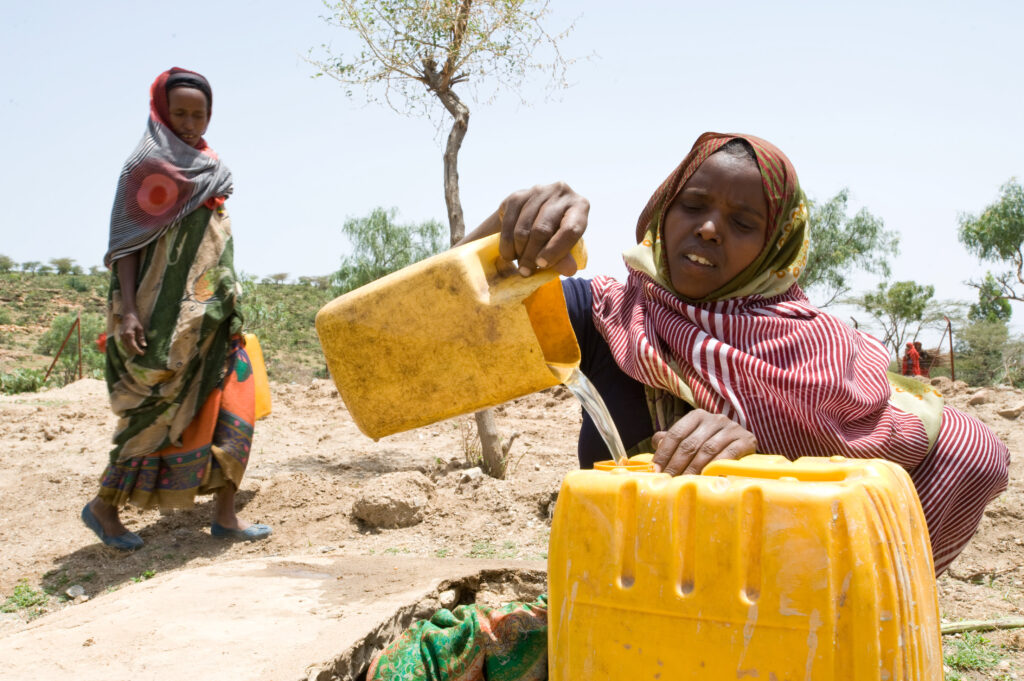
About 21% of communicable diseases in Somalia are related to unsafe water. The government is working on the issue but it cannot resolve this problem alone.
Non-governmental organizations (NGOs) too need to pitch in if we want to protect their life and also the economy and growth of the country.
That’s exactly why the Green Hope started to implement to dig 6 bore holes that provide a drinking water in some areas.
This gives people living in these rural areas more time, freedom and incentive to help their families grow to be healthy and productive members of the community.
Green Hope believe that water is a basic human right, and with your help we can go some way towards making this a reality for the people of Somalia.
IDP’s

Certain segments of the Somali population have little or no access to educational opportunities, including women and girls, marginalized groups, underserved communities (including IDPs and people with disabilities) and rural residents. This inequity can be attributed to cultural and social norms, socio-economic barriers and the absence or poor implementation of policies emphasizing inclusivity. This has serious implications for Somalia’s sustainable and equitable development. Inclusive education ensures that everyone can participate in education, employment and economic opportunities. Most of Internal Displacement People (IDP) are farmers
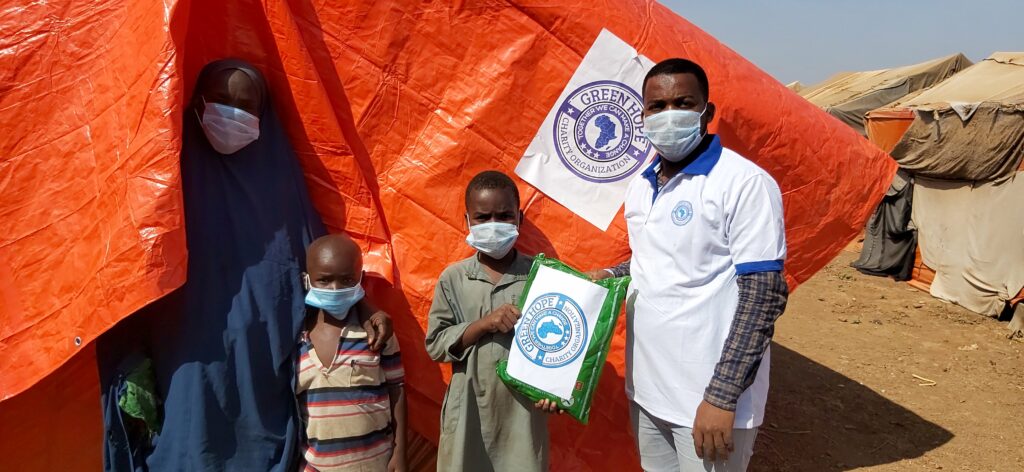
Fighting Poverty
Ending poverty in rural Somalia is the main goal of Green Hope. We are intended to provide equal opportunities for the under privileged section of the society. Together with our partners we provide material, technical, health care, education, micro financing support to create sustainable livelihoods to farmers and their families. Our interventions majorly focus on small holder farmers, women and other disadvantaged communities: the IDP’s and the disabled.
We, at Green Hope are working to empower farmers at the grass roots level to achieve sustainable farming and fighting poverty. Our Sustainable Farming programme intends to enable farmers to adapt to technological and methodological innovations & enhance their income realisation by setting up a sound access benefit sharing mechanism, thus increasing farm/dairy productivity, facilitating credit linkage and linking them to markets.

